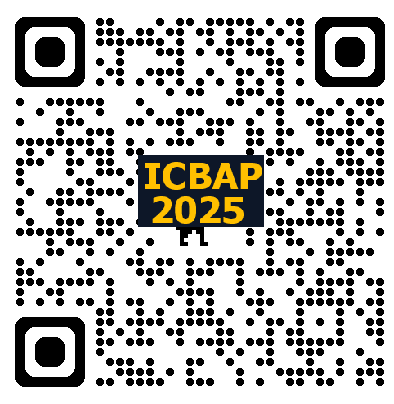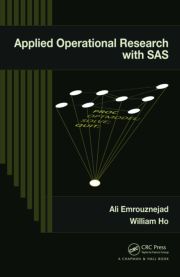ANOR- Annals of Operations Research
Special issue on:
Blockchain in Operations and Supply Chain Management
Guest editors:
Ali Emrouznejad, Soumyadeb Chowdhury, Prasanta Dey, Aston University, United Kingdom
Click HERE for details
Blockchain technology (BCT) has emerged as an enabling technology that can provide traceability, provenance and transparency in business operations, across complex global supply chain ecosystems, where leanness, agility, and speed are crucial, in addition to achieving social sustainability. It is considered one of the most disruptive technologies representing decentralised environment for transactions, self-executing digital contracts (smart contracts) and intelligent asset management over the Internet, providing a single-view to the entities (users) involved in the transaction. Therefore, the key characteristics of BCT will significantly impact the organisational governance, supply-chain relationships, operations strategy, digital transformation pathway and existing supply-chain business models. BCT when integrated with other technologies such as the Internet of Things, big data analytics, and artificial intelligence, will help to increase the efficiency of supply chain through agile data-driven decision-making based on high quality data (stored in Blockchain) and further facilitating supply chain transparency that will also afford product traceability, authenticity and legitimacy, and enhance sub-supplier transparency that will alleviate social sustainability problem in multi-tier supply networks.
Despite the potential of BCT for the field of Operations and Supply Chain Management (OSCM), it has thus far received extremely limited attention in the OSCM literature, except for a few studies reporting a systematic review of literature reflecting on the characteristics of the technology, potential drivers in a business environment and technical challenges to deploy it. However, empirical evidence and research on developing new models and contemporary tools to assess several elements related to the technology, including and not limited to, performance, organisational readiness, risk assessment, operations strategy, integration with existing ERP systems and supply chain business models, will facilitate deeper understanding of the benefits offered by the technology that in-turn will help managers and relevant decision-makers to systematically assess the impact of BCT on their respective organisation and supply chain model. Furthermore, research into application of BCT within OSCM literature will require examining the relevance of existing theories and either developing new theories or extending existing theories that will facilitate better understanding of this contemporary phenomenon and its impact on supply chain relationships, operations strategy, workforce management, business partnerships, value creation, social legislations and business transparency.
For this special issue, we expect original research papers reporting empirical evidence, models and tools, and developing new theories contributing to the application of BCT in OSCM.
The main topics of interest include but are not limited to:
- Impact of BCT on supply chain relationships
- BCT and trust in OSCM
- Blockchain adoption and risk assessment
- Blockchain adoption and performance measurement
- Blockchain and supply chain sustainability
- Blockchain and social sustainability
- Blockchain and OSCM theories
- Blockchain and operations strategy
- Blockchain and supply chain intelligence
- Blockchain readiness models and empirical assessment
- Blockchain analytics for business operations
- Blockchain and data-driven decision making
- Smart contracts in OSCM – feasibility , use-cases and business performance
- Smart contract rules and governance
- Blockchain – managerial/business perspectives
- New business/supply chain models using BCT
- Blockchain – consumer perspectives
- Blockchain and sustainability development goals in OSCM
Instructions for Authors can be found at:
https://www.springer.com/journal/10479/submission-guidelines
Authors should submit a cover letter and a manuscript by September 31, 2020, via the Journal’s online submission site. Manuscripts submitted after the deadline may not be considered for the special issue and may be transferred, if accepted, to a regular issue.
Please see the Author instructions on the web site if you have not yet submitted a paper through Springer’s web-based system, Editorial Manager. When prompted, please select the special issue’s title, Blockchain in Operations and Supply Chain Management, to ensure that it will be reviewed for this special issue.
Papers will be subject to a strict review process under the supervision of the Guest Editors, and accepted papers will be published online individually, before print publication.
Important Dates
| 31 July 2021 | Submission deadline (early submission recommended, referee process starts once the paper is received, accepted papers will be published individually online as they are accepted) |
| 31 August 2021 | Notification of status and acceptance of paper |
| 31 November 2021 | Revised manuscripts |
| 31 December 2021 | Final version of paper |
Guest Editors
Ali Emrouznejad (Managing Guest Editor), A.Emrouznejad@aston.ac.uk,
Professor Business Analytics, Operations and Information Management Department, Aston Business School, Aston University
Soumyadeb Chowdhury, S.chowdhury5@aston.ac.uk,
Lecturer Information and Communication Technology, Operations and Information Management Department, Aston Business School, Aston University
Prasanta Dey, deypk@aston.ac.uk,
Professor in Operations and Information Management, Aston Business School, Aston University















